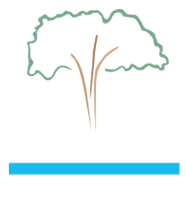Lignum Vitae North America, LLC donates bearings to The Wave Energy Prize Challenge teams. Posted on Tuesday, June 27th, 2017 and is filed under News
Lignum Vitae North America, LLC donates bearings to The Wave Energy Prize Challenge teams.
Powhatan, Va (August 25, 2015)
Bob Shortridge, President of Lignum Vitae North America, LLC. announced today that his company will donate bearings to the 20 teams advancing to the next phase in the Wave Energy Prize Challenge sponsored by the U.S. Department of Energy Water Power Program. “We look forward to seeing their innovative and forward-thinking contributions to the growth of commercial wave energy technology, and the clean energy sector as a whole.” Said Shortridge.
Against a backdrop of recent lawsuits and new regulations restricting the use of oil in the proximity of water the teams will benefit both structurally and environmentally by using Lignum Vitae as the bearing component.
In the last 5 years alone over 200 hydro power plants in North America have converted to Lignum Vitae removing all risk of a leak or spill.
To receive material simply e-mail relevant drawings or sketch to [email protected] along with an e-mail to respond with any questions and we will send one set of bearing stock to allow the inventor to custom mill their bearing design to match the machine.
What is the Wave Energy Prize?
The Wave Energy Prize is a public prize challenge sponsored by the U.S. Department of Energy (DOE)‘s Water Power Program. The prize is designed to increase the diversity of organizations involved in Wave Energy Converter (WEC) technology development, while motivating and inspiring existing stakeholders. DOE envisions this competition will achieve game-changing performance enhancements to WEC devices, establishing a pathway to sweeping cost reductions on a commercial scale.
The wave energy industry is young and is experiencing many new innovations as evidenced by a sustained growth in patent activity. While the private industry is developing these early-concept WEC devices through design and benchtop prototype testing, funding is hard to secure for performance testing and evaluation of WEC devices in wave tanks at a meaningful scale. This is a problem for the industry since scaled WEC prototype tank testing, validation, and evaluation are key steps in the advancement of WEC technologies through the technical readiness levels to reach commercialization.

"The Natural Bearing Choice for Over 130 Years"